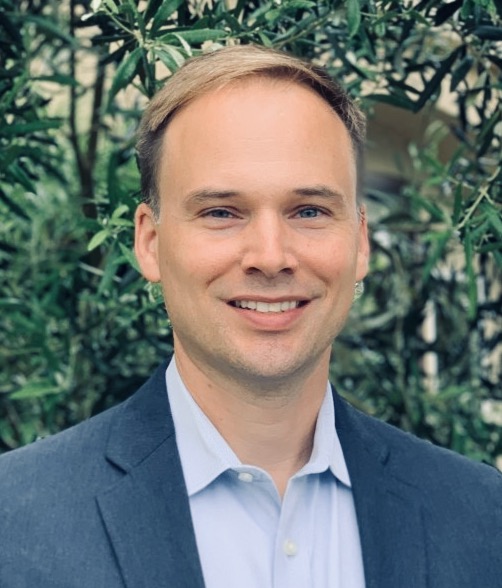A conversation with Shurden Lecturer Dr. John Compton
Dr. John Compton will deliver the 20th annual Walter B. and Kay W. Shurden Lectures on Religious Liberty and Separation of Church and State, held on the campuses of Mercer University in Macon and Atlanta, Georgia, Nov. 13-14, 2024.

A professor of political science and chair of the department at Chapman University in Orange, Calif., Dr. John Compton’s lectures will focus on the process of secularization and diminished religious authority and how they impact politics and civic life. Visit BJConline.org/ShurdenLectures for details on his three presentations and additional information, including how to join us in person or remotely.
Dr. Compton spoke with BJC to preview some of his topics:
In your book The End of Empathy: Why White Protestants Stopped Loving Their Neighbors, you note that there has been a deterioration of religious authority since the 1960s. How is that affecting our country today?
A striking feature of the current religious landscape in the U.S. is that many people who claim to be Christian believers have weak ties to organized religion. This is a major change from, say, 20 years ago. Moreover, when we look at believers who are active members of congregations, it turns out that authority dynamics within congregations are usually very weak. Church members typically do not expect their leaders to tell them what to believe or how to act in society. Instead, they expect leaders to echo or reinforce their preexisting beliefs about religion, politics and everything else. In short, power has shifted from clergy and denominational leaders to the people in the pews.
With this background in place, certain features of the current political landscape begin to make more sense — for example, the evangelical community’s embrace of Donald Trump, and also the various failed efforts to mobilize a progressive counterweight to the “religious right.” People often forget that Trump faced strong opposition from many evangelical figures and institutions in 2016, but in the end it didn’t matter: rank-and-file evangelicals liked Trump, and evangelical elites therefore had little choice but to fall in line. Similarly, there have been some large and well-funded campaigns designed to mobilize evangelicals on behalf of left-leaning causes like climate change and immigration reform, but most have ended in failure. The reason, again, is that evangelical elites have little ability to influence the views or behavior of their purported followers. Increasingly, politics tends to drive religion instead of the other way around.
How does the decline of religious authority relate to the rise of Christian nationalism in our country?
I have mixed feelings about the boom in research and writing on Christian nationalism. As others have pointed out, there are several competing definitions of “Christian nationalism,” and some are so broad as to not be particularly useful. But setting that to one side, I think the biggest misconception is that Christian nationalism is being fueled primarily by conservative churches and denominations. In reality, the evidence suggests that it’s more of an individualistic phenomenon. People who subscribe to this blend of right-leaning, hyper-patriotic, conservative Christianity are more likely to have their thinking shaped by social media personalities or political elites than by ministers or church leaders. As mentioned earlier, many of them have very weak ties to organized religion. Hence, for people who are interested in pushing back against Christian nationalism, I think the first step is to move beyond outmoded frameworks for thinking about how these ideas are popularized and spread to the wider population.
What do you hope the audience takes away from your lectures?
For years, many people assumed that the decline of organized religion — or what we might broadly term “secularization” — would be a boon to the political left. Moreover, they assumed it would bolster public support for democratic norms, since citizens who were not under the sway of organized religion would be more open-minded and more tolerant of disagreement. But, in reality, secularization has not brought increased support for civil liberties or democratic values in the United States. Rather, religious participation and democratic values are both in decline. In light of this fact, my lectures will explore some of the negative social and political dynamics that have accompanied the process of secularization in the U.S. I will also try to offer some positive thoughts about how we can mitigate these dynamics and rebuild public support for democratic values and civil liberties.
Join us for the 20th annual Walter B. and Kay W. Shurden Lectures on Religious Liberty and Separation of Church and State, held Nov. 13-14, 2024, on the campuses of Mercer University in Macon and Atlanta, Georgia. Click here for more details.
This article originally appeared in the fall 2024 edition of Report from the Capital. You can view it as a PDF or read a digital flip-through edition.




